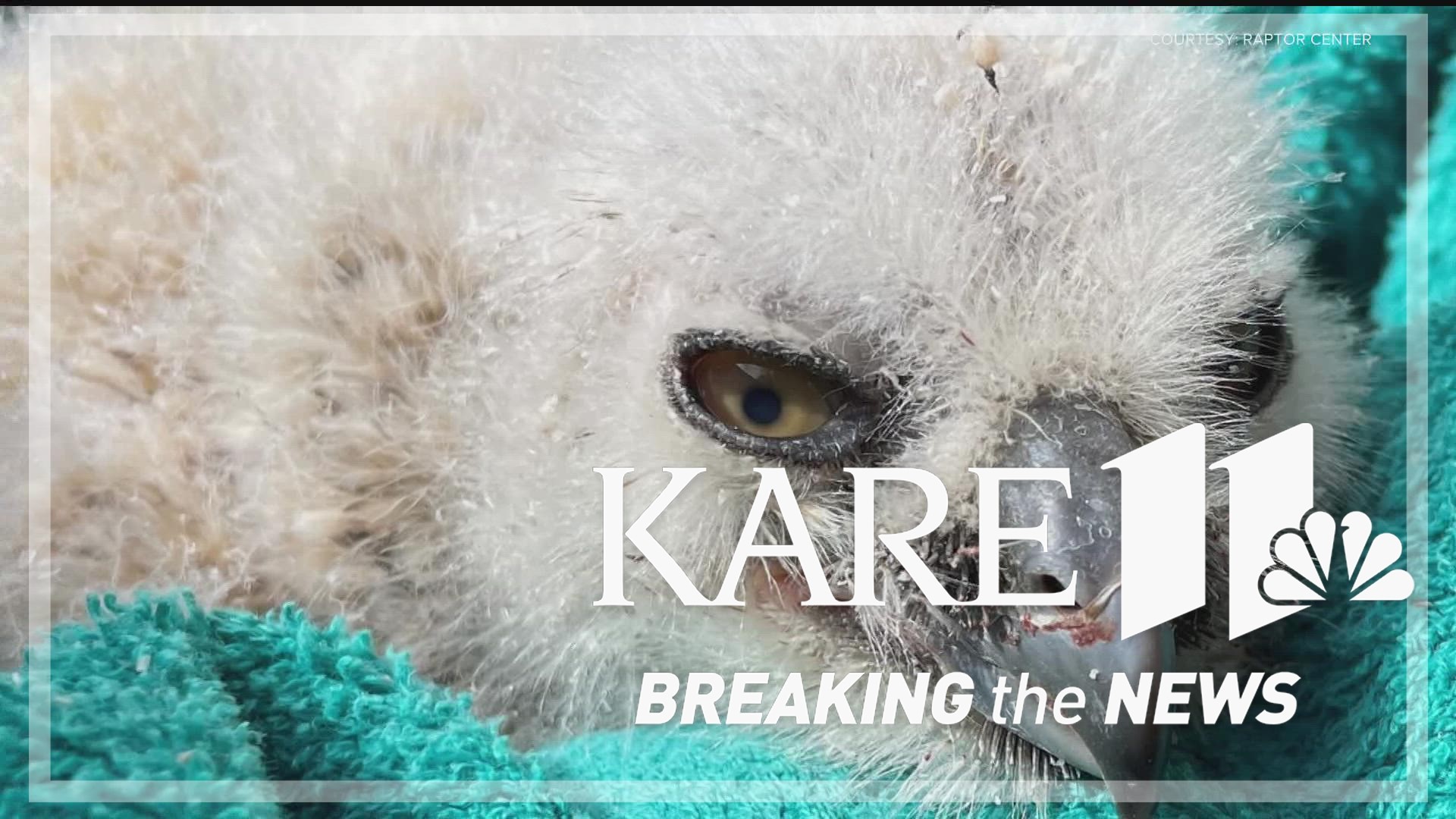MINNEAPOLIS — April's colder temperatures, and the drought-ending precipitation wasn't necessarily any good news for the highly pathogenic avian influenza.
"The weather that we've been having, oh geez, all of April — that cold, damp environment — lets it live longer in the environment," said Executive Director of the Raptor Center Dr. Victoria Hall.
Hall is keenly aware, because patient numbers have remained high at the center.
"We're still in full-blown emergency response here at the Raptor Center," Hall said. "We're seeing a huge amount of transmission in the the amount of birds coming in. ... We've seen a little bit of a dip over the last week — instead of 100% of the birds being positive, we're at a 70ish percent of the birds being positive."
And she's got her fingers crossed that those numbers will continue to go down, as drier and warmer conditions make it less likely the avian influenza will thrive.
"Also, as this weather heats up, we know some of those migratory birds are going to keep migrating north into Canada, and hopefully taking some of that bird flu with them," she added.
That being said, with the news of the fox kit dying from bird flu in Anoka County, Dr. Hall said everyone should still remain vigilant.
"Influenza A viruses can go through a multitude of different species, and it just depends on the strain, mutations it has, so not surprising that other species can be susceptible to it," she explained. "We know a human has gotten it in the U.S., and now we know that foxes are susceptible, what that says is we need to be on high alert and look out."
On top of that, severe weather from this week has added yet another challenge for raptors.
"We worry about birds in our environment right? Especially the ones that are sitting in nests right now," Hall said. "And definitely the last couple of days of storms have brought a multitude of nests down from trees. So the Raptor Center is seven days a week responding to raptors in need. We've definitely gotten a lot of calls for baby great horned owls, baby bald eagles, eastern screech owls."
But given the avian flu outbreak, Dr. Hall's recommendation is to not touch any of those birds, but to call the Raptor Center to see if someone can come out to assess the situation instead.
"We usually ask for videos or photos, and if we can go out there and treat it, and either put it back in the nest, or put artificial nests up if their nest got blown down," she said. "We like to do that instead of bringing it all the way in, we know they do their best with their parents."
Watch more Breaking The News:
Watch all of the latest stories from Breaking The News in our YouTube playlist:

